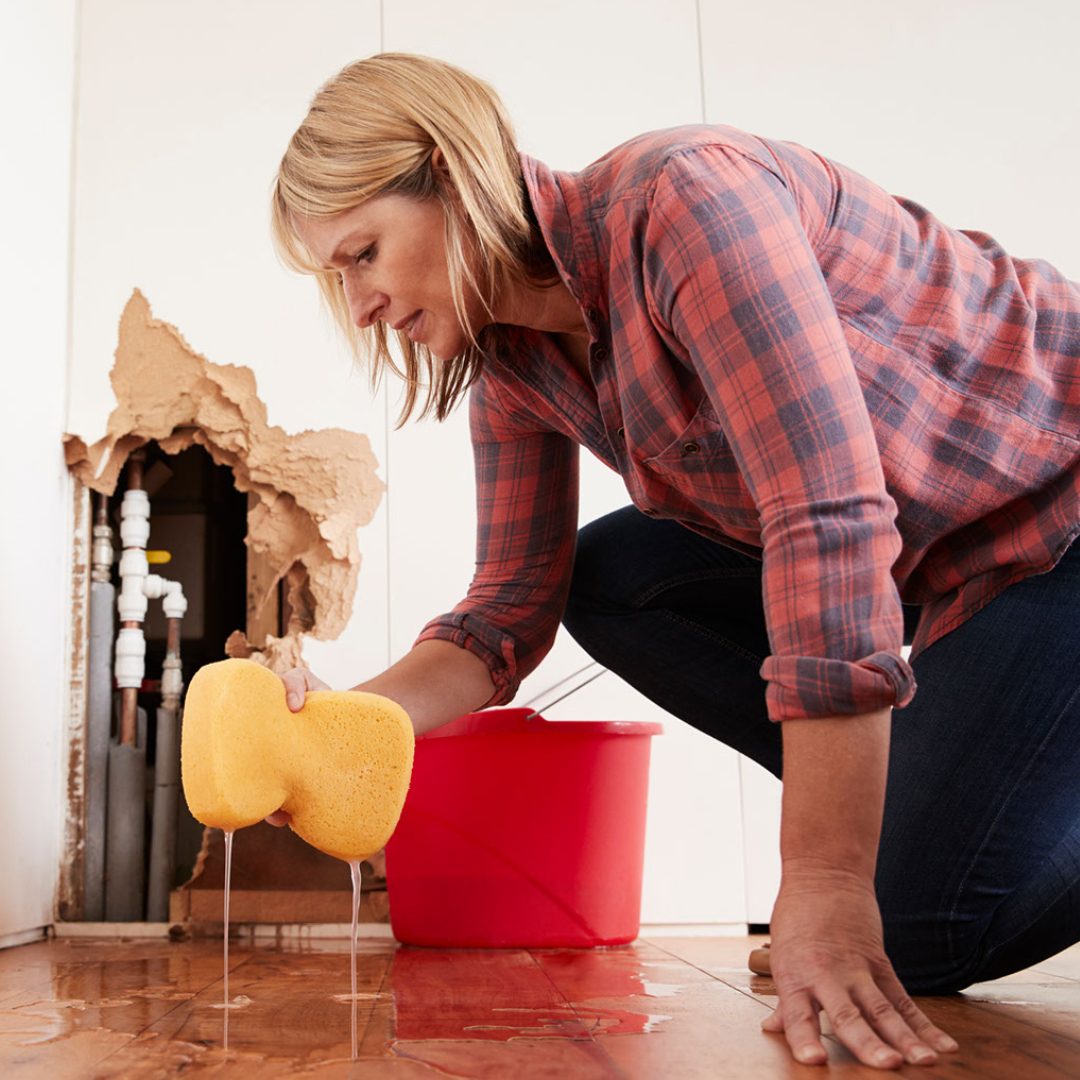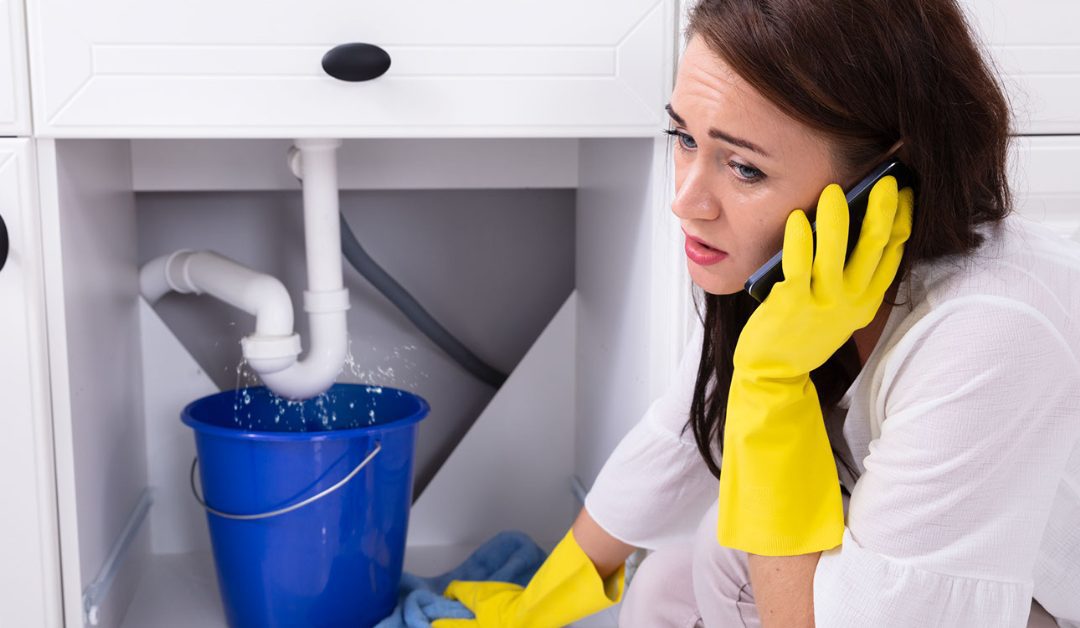Plumbing emergencies can happen unexpectedly, and they often require immediate attention to avoid further damage to your home. From burst pipes and clogged drains to overflowing toilets, there are various plumbing issues that can cause a significant amount of stress and inconvenience. In such situations, it’s crucial to know what steps you can take to minimize the damage and get the problem fixed as soon as possible.
If you find yourself in the midst of a plumbing emergency, don’t panic. Instead, take a deep breath and follow these essential tips from Ehret Inc.- your trusted plumbing and HVAC expert. With decades of experience in the industry, we’ve seen it all when it comes to plumbing emergencies.
Identify the Emergency: Signs of a plumbing emergency
The signs of a plumbing emergency can be subtle and easy to dismiss, but it is important to recognize them before they turn into a major problem. One sign is low water pressure, which could indicate a leak or blockage in the pipes. Another sign is slow drainage in sinks, tubs, or toilets, which could mean there is a clog deep in the plumbing system.
If you notice strange noises coming from your pipes or water heater, this could also be a sign of an emergency brewing. Banging or clanging sounds may indicate that there is air trapped somewhere in the system and needs to be released. Other signs to look out for include foul odors emanating from your drains or visible moisture around fixtures and appliances.
In any of these situations, it’s important not to panic. Instead, immediately shut off the main water valve and call a licensed plumber who can diagnose the issue and provide solutions. In some cases, waiting too long can lead to extensive damage and costly repairs down the line. By recognizing the signs of an emergency early on and taking swift action, you can prevent further damage and protect your home from potential disaster.

Shut off the Water: Turning off the main water line
In the case of a plumbing emergency, shutting off the main water line is one of the first steps you should take. This will prevent any further damage to your home and help minimize flooding or leaks. It’s important to know where your main water shut-off valve is located before an emergency occurs. Typically, it can be found in a basement or utility room near the front of the house.
To turn off the main water line, locate the shut-off valve and turn it clockwise until it stops. This will cut off all water flowing into your home. If you have trouble locating or turning off the valve, contact a plumber for assistance.
It’s also important to note that once you’ve turned off the main water line, do not attempt to use any plumbing fixtures in your home as there may still be residual water in pipes that can leak out and cause further damage. Wait for a professional plumber to assess and fix any issues before turning on your water again.
Call for Professional Help: Finding a reliable plumber
In the event of a plumbing emergency, it is important to call for professional help immediately. However, finding a reliable plumber can be daunting. Start by asking friends and family for recommendations or checking online reviews. Look for plumbers who are licensed and insured, as this ensures that they have the necessary qualifications and protection in case of accidents.
When contacting potential plumbers, ask about their availability and rates. It is also important to clarify what services they offer and whether they have experience with the specific issue you are facing. Additionally, don’t hesitate to ask for references or examples of previous work.
Once you have found a reliable plumber, keep their contact information handy in case of future emergencies. Regular maintenance checks can also prevent future problems from arising. Remember that investing in a trustworthy plumber can save you time, money, and headaches down the road.
Temporary Solutions: DIY fixes until help arrives
If you’re ever faced with a plumbing emergency, it’s important to know how to handle the situation before help arrives. In some cases, it may take a while for a professional plumber to arrive at your home, and in the meantime, you’ll need to do what you can to prevent further damage. Fortunately, there are several DIY fixes that can help temporarily alleviate the problem.
One common issue homeowners face is a burst pipe. If you find yourself dealing with this problem, turn off your water supply immediately. Then, use duct tape or rubber bands to wrap around the damaged area of the pipe until a plumber can properly fix it. Another temporary solution is using towels or rags to soak up any excess water and prevent further flooding.
Another common issue is clogged drains. While waiting for professional help, try using baking soda and vinegar followed by boiling water to dissolve any blockages in your drain pipes. Additionally, using pliers or tongs to remove any visible debris from your drain will also help improve water flow until a professional plumber can address the underlying cause of the blockage.
Prevention is Key: Tips to avoid future emergencies
Prevention is key when it comes to avoiding plumbing emergencies. One of the easiest ways to prevent plumbing issues is by regularly cleaning and maintaining your pipes. This means flushing out any debris and sediment that may have built up over time, as well as checking for leaks or cracks in the pipes themselves.
Another important preventative measure is being mindful of what you put down your drains. Avoid pouring grease or oil down the sink, and make sure to properly dispose of any non-biodegradable materials. Additionally, investing in high-quality plumbing fixtures can help prevent leaks and other issues from arising.
In the event of a plumbing emergency, it’s important to act quickly but also stay calm. Shut off the water supply if possible, and contact a professional plumber right away for assistance. Remember that prevention is always better than dealing with an emergency situation after it has already occurred, so take steps now to avoid future problems with your plumbing system.
Conclusion: Acting fast and staying calm
In the event of a plumbing emergency, it is crucial to act fast and stay calm. Acting fast means turning off the main water supply to your home to prevent further damage. It could be located outside your house or in a utility room. If you can’t find it, contact your local plumber who will guide you through the process.
Staying calm is also essential in such situations as panicking will only make things worse. Take a deep breath and assess the situation before taking any action. If you don’t have the necessary skills or tools to fix the problem yourself, don’t hesitate to call a professional plumber for help.
Remember that dealing with plumbing emergencies requires quick thinking and level-headedness. Acting fast and staying calm can save you from extensive damages, minimize repair costs, and provide peace of mind during stressful situations.

